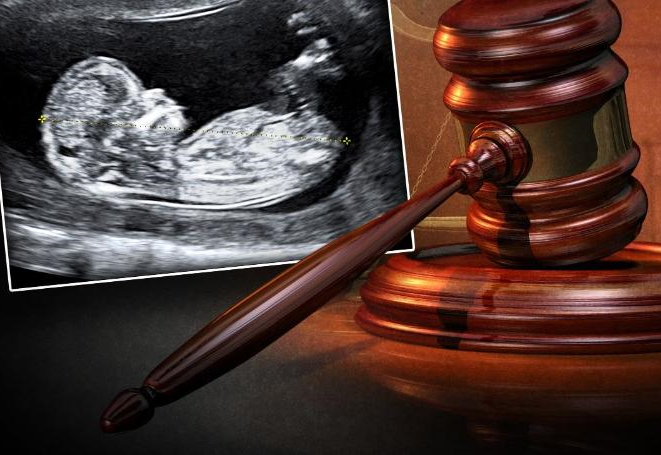A judge declared Iowa’s heartbeat law unconstitutional Tuesday, prohibiting the state from protecting first-trimester unborn babies from abortion.
Polk County District Judge Michael Huppert acknowledged that unborn babies do have a heartbeat early in the first trimester, Reuters reports. However, despite the scientific evidence of life in the womb, Huppert ruled against the law anyway.
“A woman’s right to decide whether to terminate a pregnancy is a fundamental right under the Iowa Constitution,” Huppert said, citing an Iowa Supreme Court decision, the Des Moines Register reports.
If enforced, the Iowa law would require abortion practitioners to test for the unborn baby’s heartbeat before performing an abortion. If a heartbeat is detected, the abortion would be prohibited except in cases of medical emergency, rape, incest or fetal abnormalities deemed to be “incompatible” with life.
Because an unborn baby’s heartbeat is detectable by about six weeks of pregnancy, the law would prohibit almost all abortions in Iowa. It is the earliest abortion ban in the United States.
“It is undisputed that such cardiac activity is detectable well in advance of the fetus becoming viable,” Huppert wrote.
However, he said the law still is unconstitutional because it violates “both the due process and equal protection provisions of the Iowa Constitution.”
Here’s more from the report:
Huppert wrote in his decision that defenders of the 2018 “fetal heartbeat” law didn’t identify a compelling state interest in barring most abortions after a fetus’ heartbeat can be detected.
Gov. Kim Reynolds, a Republican who opposes abortion, signed the law. “I am incredibly disappointed in today’s court ruling, because I believe that if death is determined when a heart stops beating, then a beating heart indicates life,” she said in a statement her office released Tuesday.
LifeNews depends on the support of readers like you to combat the pro-abortion media. Please donate now.
State Sen. Janet Petersen of Des Moines, the Democrats’ leader in the Iowa Senate, praised the ruling. “The extreme law should have been overturned, because it restricted the freedom of Iowa women and girls to care for their bodies, and it forced motherhood on them,” she said. “The governor and legislative Republicans should stop attacking women’s health care.”
Attorneys for the state are expected to appeal the ruling, and Maggie DeWitte, executive director of Iowans for Life, hopes for eventual success.
DeWitte told the local news that she was “hopeful this judge would be fair in allowing the matter to go before a fair trial. I think it’s a travesty of justice that’s not going to happen.”
Planned Parenthood sued to overturn the law in 2018 after calling the pro-life legislation “gross” and “dangerous.” The American Civil Liberties Union and the Emma Goldman Clinic, an abortion facility in Iowa City, also are involved in the lawsuit.
Iowa lawmakers expected a legal challenge when they passed the law last spring. Previously, pro-life state Rep. Shannon Lundgren, a Republican, admitted that the legislation likely would expose the state to a legal challenge, KMA Radio News reports.
“The science and technology have significantly advanced since 1973,” Lundgren said. “It is time for the Supreme Court to weigh in on the issue of life. It has taken decades for the science to catch up with what many have believed all along, that she’s a baby.”
The goal of the legislation is to prevent the deaths of thousands of unborn babies every year. However, even some pro-life advocates admit that the success of the legislation is uncertain. While the rationale behind the law is noble, a number of pro-life leaders recognize that, for the present, such laws may create unintended consequences that could hamper the pro-life cause.
North Dakota and Arkansas passed heartbeat bills several years ago, but federal courts struck down both laws.
The Eighth Circuit Court of Appeals said the following about its ruling on the six-week ban: “Because there is no genuine dispute that (North Dakota’s law) generally prohibits abortions before viability — as the Supreme Court has defined that concept — and because we are bound by Supreme Court precedent holding that states may not prohibit pre-viability abortions, we must affirm the district court’s grant of summary judgment to the plaintiffs.”
When courts rule against such laws, state taxpayers often are forced to reimburse pro-abortion groups for their legal fees.
There is more hope that the new conservative-majority U.S. Supreme Court may consider an abortion ban, but it is difficult to say if it would for certain. Some legal scholars have speculated that the conservative court would be more likely to consider cases that gradually chip away at Roe v. Wade rather than reverse it completely.








